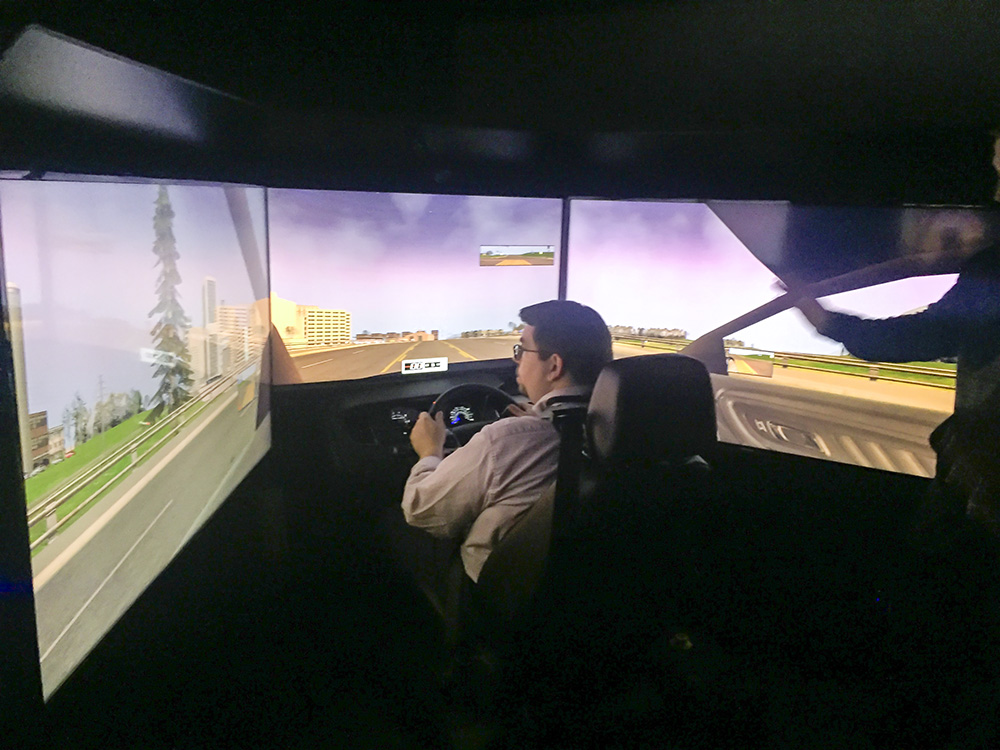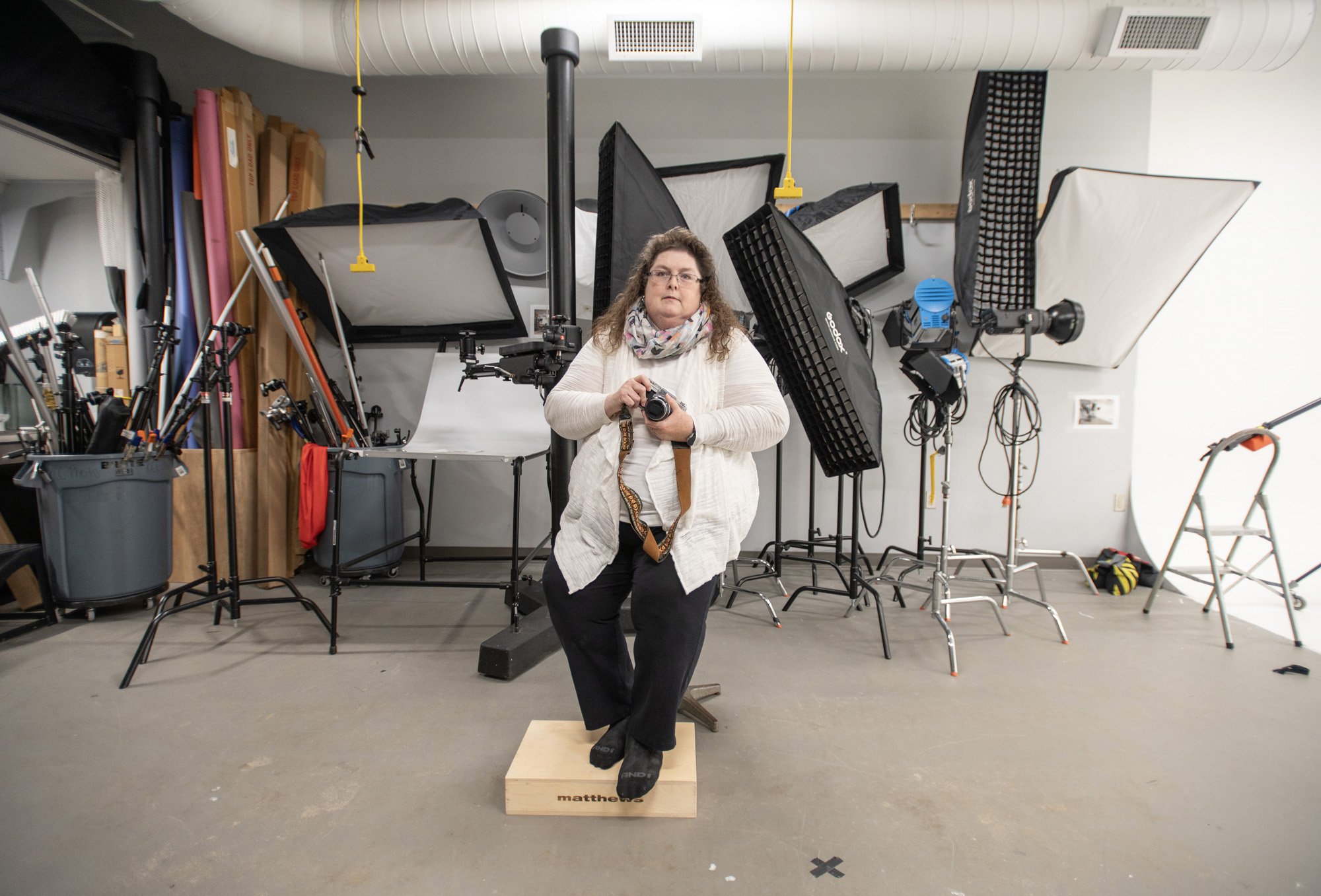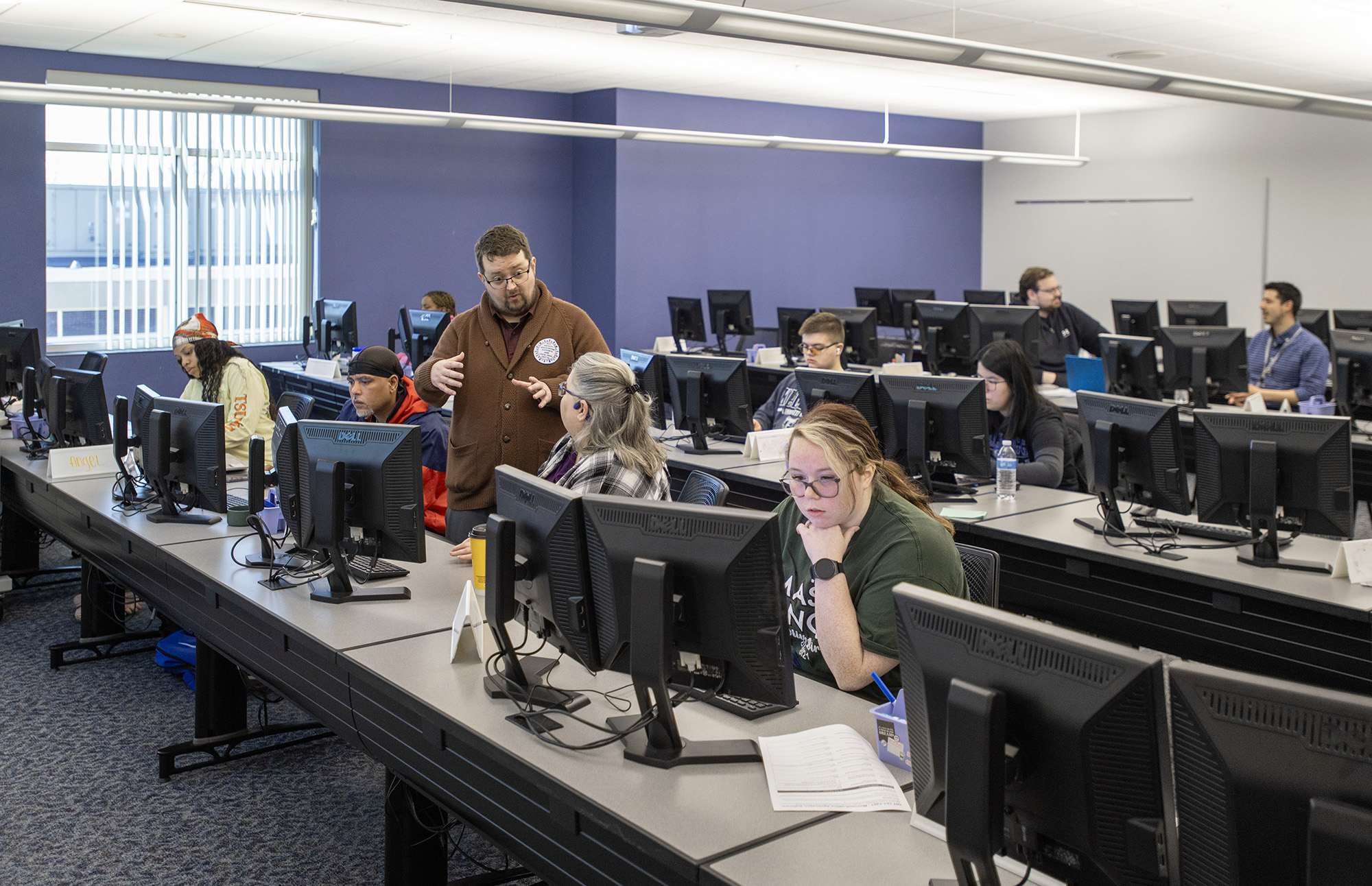By Dr. Chet Dalski
KCC EMS Education Director
Instructors in Kellogg Community College’s Criminal Justice and Emergency Medical Services programs received instructor training on new FAAC Emergency Driving Simulators Nov. 18 through 20. The 24-hour train-the-trainer program taught the instructors how to use the driving simulators as part of a larger emergency driving program. The goal was to incorporate driving simulation into the larger programs so that students can be better trained in emergency accident avoidance.
One of the life-threats that EMS and law enforcement officials face is when they respond in emergency mode (using emergency lights and siren) to an accident scene. The driving simulators allow students to experience and anticipate conditions that can lead to an accident.
KCC’s EMS Education Director Dr. Chet Dalski said, “Emergency accidents aren’t usually caused by just one factor, but rather a series of conditions, all of which may contribute to the accident. High-fidelity simulation allows us to replicate those very conditions by putting the student literally in the driver’s seat to experience these accidents as the driver. By doing this, they learn how to avoid them in the future. Studies have shown dramatic decreases in emergency accidents by workers where this technology has been deployed. It’s a strange thing to actually want your students to have an accident so that they can learn from it; however, that’s exactly what this system does.”
One of the benefits of simulation training for emergency workers is improved observational skills. EMS faculty member Mark Malcuit said, “After driving in the simulator, you find yourself watching for things you didn’t previously see. It peaks your awareness for high-acuity situations that result in accidents.”
In one of the scenarios that instructors practiced, two vehicles are parked on the shoulder of a street that the officials are driving by to get to an emergency scene. A ball rolls out from between the parked vehicles – at first, it seems no danger to the ambulance or police car. In a split-second decision, the operator must brake for the child that will be chasing the ball, unseen to the driver. That’s one example of the heightened awareness and anticipation of the unexpected that is developed through the simulation training.
These $221,000 simulators were purchased through a Community College Skilled Trades Equipment Program (CCSTEP) grant awarded to KCC from the state earlier this year. The grant allowed a one-time purchase of educational items greater than $10,000 in value to improve occupational programs throughout the state. Monies to provide a 25 percent match to grant dollars were provided by local employers.
KCC’s Workforce Development Dean Dr. Jan Karazim said, “The CCSTEP grant provides a win-win for employers in the community. Our students receive better education resulting in better trained workers for our employers. One of the things that sets our college apart from other community colleges is the phenomenal lab experiences they receive through grants such as the CCSTEP.”
For more information about Criminal Justice studies at KCC, visit www.kellogg.edu/criminal-justice.
For more information about EMS studies at KCC, visit www.kellogg.edu/emergency-medical-services.














